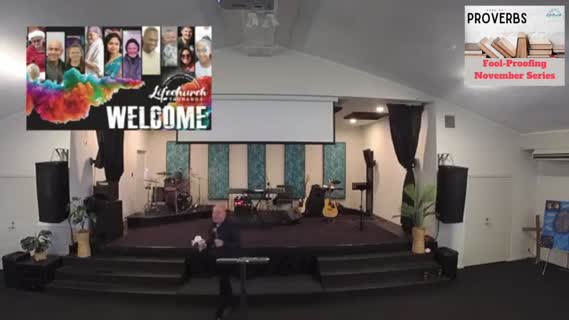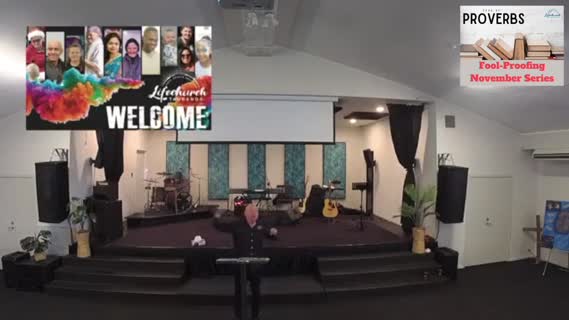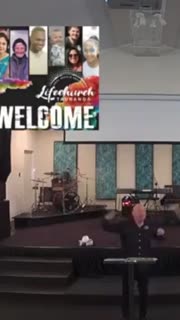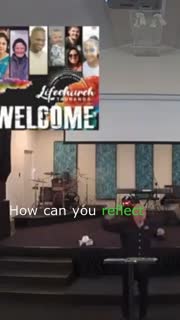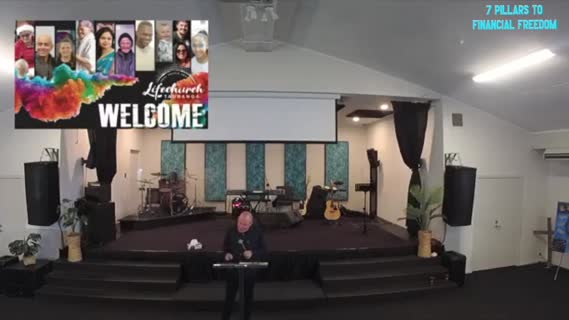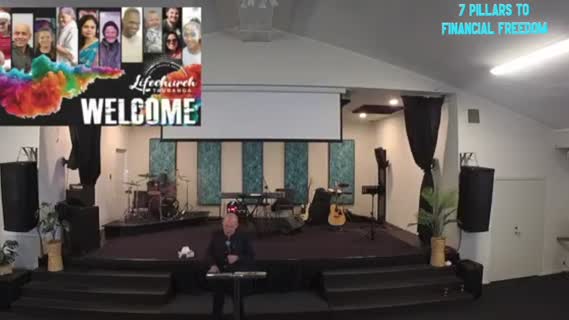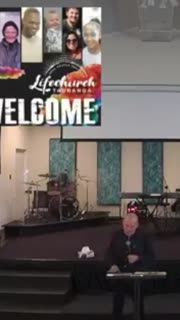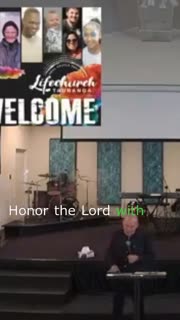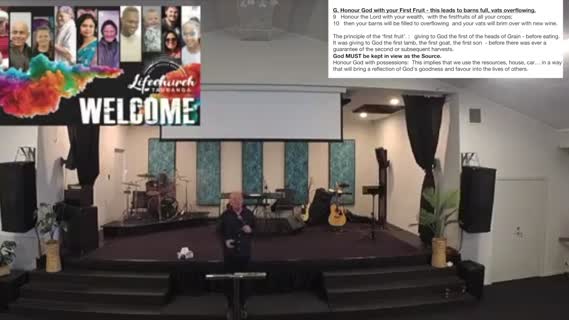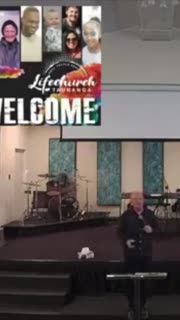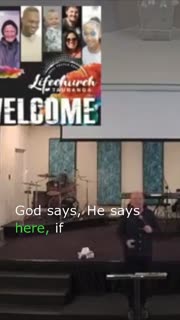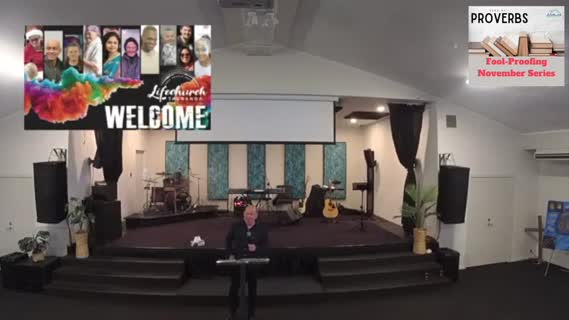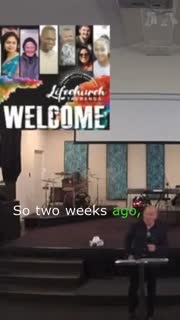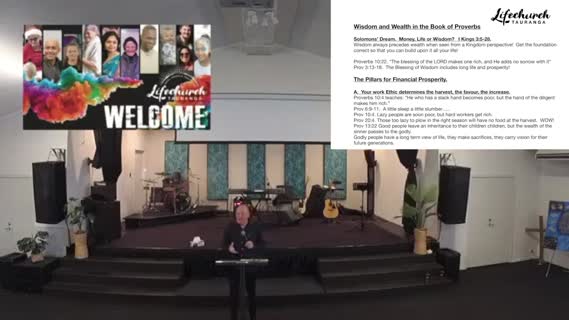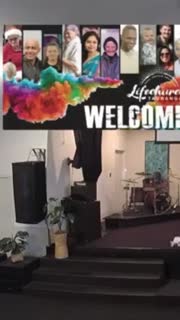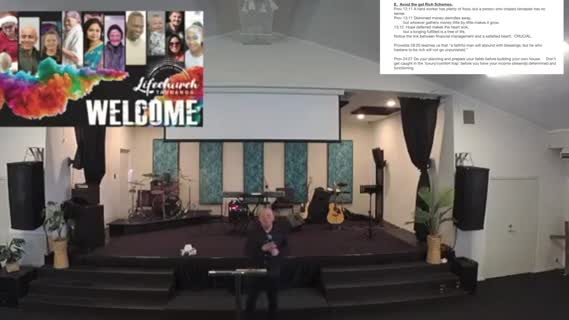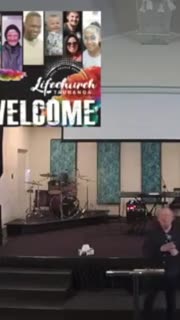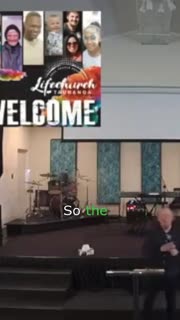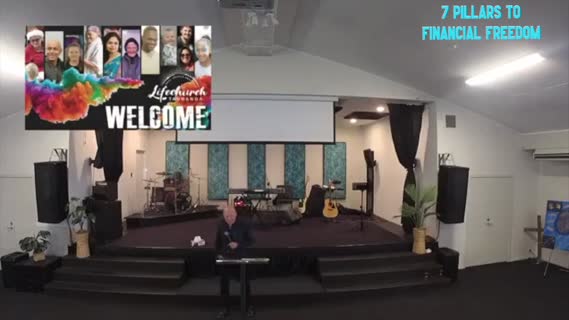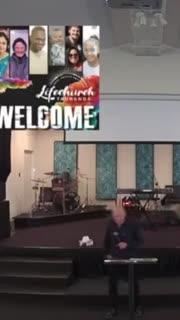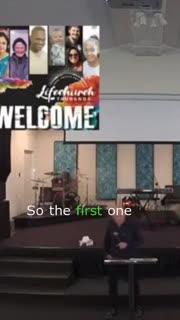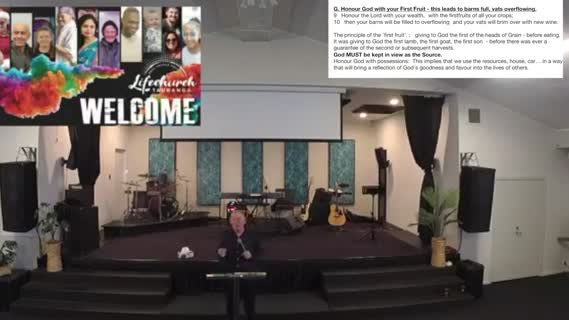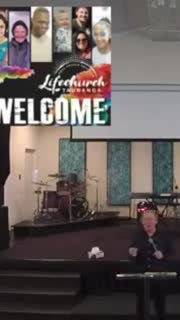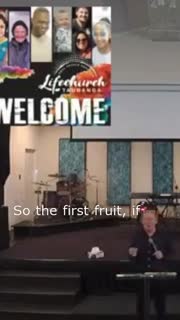Walking in Wisdom: Embracing God's Presence and Prosperity
Devotional
Sermon Summary
Bible Study Guide
Sermon Clips
### Quotes for Outreach
1. "Friends, I want to say to you so clearly this morning, there is a blessing that God wants to put upon our lives that when that blessing, comes it brings a richness into our lives and it does not bring sorrow. There are many people who have riches, but it's cost it's come to them at the cost of their children. It's come at the cost of their marriage. It's come at the cost of their journey and their relationship with God. The pursuit of riches in and of itself will always cost you something unless you pursue it. But according to the kingdom, because there is a blessing from God that makes you rich." [48:32]
2. "How can you reflect an abundant God if you never have more than you need to survive for the day? It's difficult. It's difficult. And yet God says there is, I can make you rich and I can do it without adding sorrows to you." [49:30]
3. "He who gives to the poor lends to God and God will repay him. There's something about the heart of God where generosity flows out of who God is. God so loved that he gave. John 3, 16. And being in a position where we overflow love, love and kindness, but we overflow in generosity to people who cannot ever repay us is part of our responsibility to be a reflection of who God is." [01:00:27]
4. "Honor the Lord with your wealth, with the firstfruits of your crops. Honor the Lord with your increase, some translations put it, with the firstfruits of all your crops. And then your barns will be filled to overflowing and your vats will brim over with new wine. The essence of this scripture is it's a process that God has put in place so that every year on a regular basis our hearts are confronted with the question who is your source? Who is the source of your life and your provision? Is it you and your effort or is it actually God?" [01:16:14]
5. "God says, He says here, if you honor the Lord with your increase, with the first fruit, so in the Hebrew-Israeli culture, it was the first of the wheat, first of the corn, it was the first lamb that came out of the ewe, it was the first heifer, the first baby calf that came out of the cow. It's the first. And it was the first son that came from the womb. Now, not that you sacrificed that, but you brought a sacrifice in place of your son. But God says, every time the first comes, I want you to set your eyes on heaven." [01:18:11]
### Quotes for Members
1. "So two weeks ago, let's just do a recap off the floor rather than me rapping. What did we do two weeks ago? Heart. So what was this? The scripture we spent the morning on? Proverbs chapter 4, verse 23. And what does it say? It says, Above. Sorry? What did that do? Defend, protect, and value your heart above everything else. Why? Because out of your heart come the issues of your life. The rivers of life, the dreams, the passion, the faith, the journey comes. It comes out of what's in us. And we looked at King David. And the scripture says David had a heart after God. So we looked at a couple of things in David's life that God says, I will like." [45:03]
2. "Friends, one of the things about becoming smart is understanding the physical seasons and understanding the spiritual seasons that actually will lead us to growth and prosperity. Chapter 13 verse 22. Good. This is an interesting one. Good people leave an inheritance to their children's children, but the wealth of the sinner passes to the God. So the principle here is that a good person puts his hand to the plow because the objective is to leave an inheritance for the grandchildren. Now, that inheritance needs to be understood multifaceted. We need to understand that's a legacy of righteousness first and foremost. It's a legacy that you have lived out your faith with conviction and with passion and commitment. Your children and your grandchildren have seen, man, my dad, he is just, my granddad, he is just one of those, I'll use the term, religious freaks. He just loves God. He loves God with everything about him. Well, what a great way for your grandkids to look at you all." [54:47]
3. "So the principle is have a field, plow your field, get your field planted, get whatever it is producing, get your career producing, get your skills functioning, get those things that are going to create multiple income streams working in your life and then worry about the comfort that you think you need, that you think, and then build your house. It's such a great business principle. I'm trying to track it down and confirm this. I'll quote it to you but I haven't got the reference for it. In many Jewish contexts, in Hebrew contexts, the father will start a business and he uses the profit to start the second one and he uses the profit of the second one to start the third and then out of the third he builds his house. Because he doesn't rely on one tree alone, one field alone to establish financial stability. So I'd encourage you, find ways to increase your income stream, your livelihood." [01:12:08]
4. "So the first one is your work ethic determines your harvest. That's not complex, is it? But your work ethic determines your harvest. It determines the favor and determines the increase that's going to come into your life. Proverbs 10, four says he who has a slack hand. In other words, he doesn't take it out of his pocket. Who never, who never gets to work, becomes poor, but the hand of the diligent makes him rich. So there's a direct correlation, direct connection between now we're talking hand here in the context of farming and skills. So it's not, it's not, it's, it's allegorical in one sense, but the picture is there. He was slack with his hand, becomes poor. Proverbs six, nine to 11, a little sleep, a little slumber, a little falling of the hands to rest. And I love this. And poverty will jump, jump out on you like a bandit, like an armed man. The interesting thing from that verse is sometimes people don't see poverty coming. They don't see it coming. And suddenly it grabs them. And they think, how did that happen? And it's because a little sleep, a little slumber, a little falling of the hands to rest. And this poverty has snuck up on you because you can look at what's in a bank account and think, oh, that's great. I've got something there. But you know what? If the supply into the bank account is not coming, that's very, very finite. If your field is not plowed and sowed, there's no harvest." [52:17]
5. "So the first fruit, if you're a farmer and I'm sure we've all seen this, you go outside and there's your field of wheat or barley or whatever and the first heads are just starting to bend over. And just remember, you've been eating dried wheat or corn for months and suddenly there's this fresh corn cob growing there and you think, oh, a bit of roasting and a little bit of butter and a bit of salt and lots of pepper. God says it's the first fruit. Because you see, what it does is it confronts our hearts with where am I actually looking to for provision of my needs. So God says, He says here, if you honor the Lord with your increase, with the first fruit, so in the Hebrew-Israeli culture, it was the first of the wheat, first of the corn, it was the first lamb that came out of the ewe, it was the first heifer, the first baby calf that came out of the cow. It's the first. And it was the first son that came from the womb. Now, not that you sacrificed that, but you brought a sacrifice in place of your son. But God says, every time the first comes, I want you to set your eyes on heaven." [01:17:34]
Ask a question about this sermon
1. "Friends, I want to say to you so clearly this morning, there is a blessing that God wants to put upon our lives that when that blessing, comes it brings a richness into our lives and it does not bring sorrow. There are many people who have riches, but it's cost it's come to them at the cost of their children. It's come at the cost of their marriage. It's come at the cost of their journey and their relationship with God. The pursuit of riches in and of itself will always cost you something unless you pursue it. But according to the kingdom, because there is a blessing from God that makes you rich." [48:32]
2. "How can you reflect an abundant God if you never have more than you need to survive for the day? It's difficult. It's difficult. And yet God says there is, I can make you rich and I can do it without adding sorrows to you." [49:30]
3. "He who gives to the poor lends to God and God will repay him. There's something about the heart of God where generosity flows out of who God is. God so loved that he gave. John 3, 16. And being in a position where we overflow love, love and kindness, but we overflow in generosity to people who cannot ever repay us is part of our responsibility to be a reflection of who God is." [01:00:27]
4. "Honor the Lord with your wealth, with the firstfruits of your crops. Honor the Lord with your increase, some translations put it, with the firstfruits of all your crops. And then your barns will be filled to overflowing and your vats will brim over with new wine. The essence of this scripture is it's a process that God has put in place so that every year on a regular basis our hearts are confronted with the question who is your source? Who is the source of your life and your provision? Is it you and your effort or is it actually God?" [01:16:14]
5. "God says, He says here, if you honor the Lord with your increase, with the first fruit, so in the Hebrew-Israeli culture, it was the first of the wheat, first of the corn, it was the first lamb that came out of the ewe, it was the first heifer, the first baby calf that came out of the cow. It's the first. And it was the first son that came from the womb. Now, not that you sacrificed that, but you brought a sacrifice in place of your son. But God says, every time the first comes, I want you to set your eyes on heaven." [01:18:11]
### Quotes for Members
1. "So two weeks ago, let's just do a recap off the floor rather than me rapping. What did we do two weeks ago? Heart. So what was this? The scripture we spent the morning on? Proverbs chapter 4, verse 23. And what does it say? It says, Above. Sorry? What did that do? Defend, protect, and value your heart above everything else. Why? Because out of your heart come the issues of your life. The rivers of life, the dreams, the passion, the faith, the journey comes. It comes out of what's in us. And we looked at King David. And the scripture says David had a heart after God. So we looked at a couple of things in David's life that God says, I will like." [45:03]
2. "Friends, one of the things about becoming smart is understanding the physical seasons and understanding the spiritual seasons that actually will lead us to growth and prosperity. Chapter 13 verse 22. Good. This is an interesting one. Good people leave an inheritance to their children's children, but the wealth of the sinner passes to the God. So the principle here is that a good person puts his hand to the plow because the objective is to leave an inheritance for the grandchildren. Now, that inheritance needs to be understood multifaceted. We need to understand that's a legacy of righteousness first and foremost. It's a legacy that you have lived out your faith with conviction and with passion and commitment. Your children and your grandchildren have seen, man, my dad, he is just, my granddad, he is just one of those, I'll use the term, religious freaks. He just loves God. He loves God with everything about him. Well, what a great way for your grandkids to look at you all." [54:47]
3. "So the principle is have a field, plow your field, get your field planted, get whatever it is producing, get your career producing, get your skills functioning, get those things that are going to create multiple income streams working in your life and then worry about the comfort that you think you need, that you think, and then build your house. It's such a great business principle. I'm trying to track it down and confirm this. I'll quote it to you but I haven't got the reference for it. In many Jewish contexts, in Hebrew contexts, the father will start a business and he uses the profit to start the second one and he uses the profit of the second one to start the third and then out of the third he builds his house. Because he doesn't rely on one tree alone, one field alone to establish financial stability. So I'd encourage you, find ways to increase your income stream, your livelihood." [01:12:08]
4. "So the first one is your work ethic determines your harvest. That's not complex, is it? But your work ethic determines your harvest. It determines the favor and determines the increase that's going to come into your life. Proverbs 10, four says he who has a slack hand. In other words, he doesn't take it out of his pocket. Who never, who never gets to work, becomes poor, but the hand of the diligent makes him rich. So there's a direct correlation, direct connection between now we're talking hand here in the context of farming and skills. So it's not, it's not, it's, it's allegorical in one sense, but the picture is there. He was slack with his hand, becomes poor. Proverbs six, nine to 11, a little sleep, a little slumber, a little falling of the hands to rest. And I love this. And poverty will jump, jump out on you like a bandit, like an armed man. The interesting thing from that verse is sometimes people don't see poverty coming. They don't see it coming. And suddenly it grabs them. And they think, how did that happen? And it's because a little sleep, a little slumber, a little falling of the hands to rest. And this poverty has snuck up on you because you can look at what's in a bank account and think, oh, that's great. I've got something there. But you know what? If the supply into the bank account is not coming, that's very, very finite. If your field is not plowed and sowed, there's no harvest." [52:17]
5. "So the first fruit, if you're a farmer and I'm sure we've all seen this, you go outside and there's your field of wheat or barley or whatever and the first heads are just starting to bend over. And just remember, you've been eating dried wheat or corn for months and suddenly there's this fresh corn cob growing there and you think, oh, a bit of roasting and a little bit of butter and a bit of salt and lots of pepper. God says it's the first fruit. Because you see, what it does is it confronts our hearts with where am I actually looking to for provision of my needs. So God says, He says here, if you honor the Lord with your increase, with the first fruit, so in the Hebrew-Israeli culture, it was the first of the wheat, first of the corn, it was the first lamb that came out of the ewe, it was the first heifer, the first baby calf that came out of the cow. It's the first. And it was the first son that came from the womb. Now, not that you sacrificed that, but you brought a sacrifice in place of your son. But God says, every time the first comes, I want you to set your eyes on heaven." [01:17:34]
